|
|
|
|
Nau mai haere mai.
So much about those early parenting months is a blur, it’s hard to remember what kind of entitlements we “enjoyed” back before paid parental leave was introduced in 2001. We could take time off without pay, and we could share that leave between us. But the pressure to start earning again was fairly strong.
So yesterday’s promise by the Labour Party to extend the existing paid parental leave system to include four weeks for partners might look like a great leap forward. And I guess compared to where we were in the 1990s – up to our eyeballs in nappies and debt – it does. But let’s face it, that’s not a very high bar.
In fact, as Kate Prickett writes today, if Labour holds on to power its policy would only move New Zealand into the bottom half of the OECD, based on how much (and for how long) a partner’s real income is replaced by the proposed scheme. Compared to the Scandinavian “gold standard”, it’s positively miserly.
That’s not to say it isn’t a step in the right direction. Better some pay than none at all. Still, writes Prickett, “the scope and generosity of the policy on offer falls well short of the evidence-backed benefits that appropriately funded partner leave can have for children and their families.”
Also this week we have a fascinating explanation of how “mathematics is a realisation in symbols of the fundamental nature and creativity of the mind”. In other words, maths is us and we are maths. Enjoy, and until next week, mā te wā.
|

|
Finlay Macdonald
New Zealand Editor
|
|

Kate C. Prickett, Te Herenga Waka — Victoria University of Wellington
All the evidence points to paid partner’s leave having many benefits for children and families – but Labour’s promise falls short on time and money.
|

Eunice Gaerlan, Auckland University of Technology
The National Party wants a blanket ban on cellphones in school. But international research suggests improving student engagement is complex, and such a policy might even be counterproductive.
|

Randolph Grace, University of Canterbury
Humans have been making symbols for numbers for thousands of years. Different cultures developed their own symbols, but all use addition and multiplication, suggesting arithmetic is a universal truth.
|
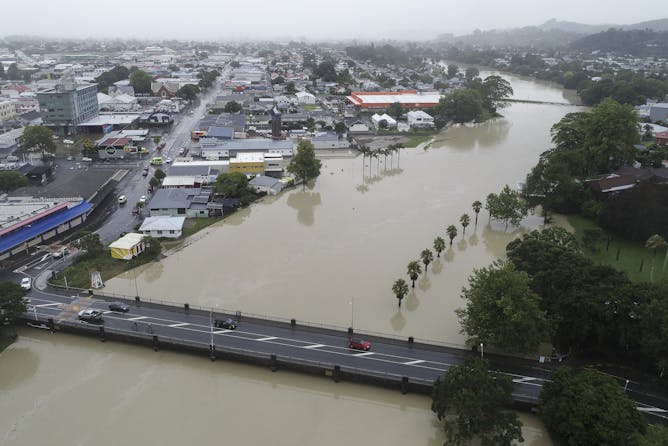
Timothy Welch, University of Auckland
A new report sets out the practical ways New Zealand can improve its urban resilience to flooding due to climate change. But time, rather than money, is of the essence.
|
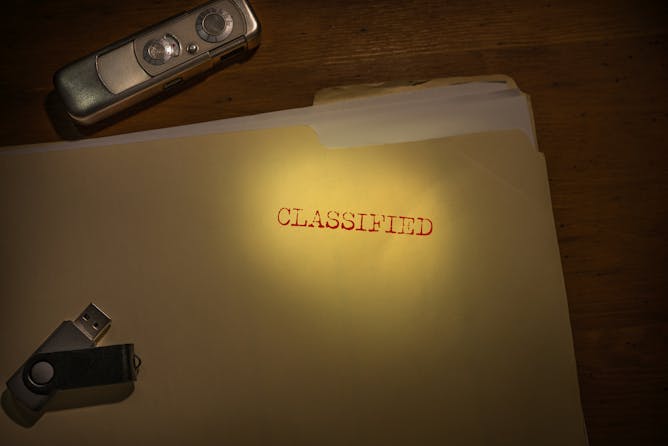
Alexander Gillespie, University of Waikato
The Security Intelligence Service needs public support and trust to do its work well. Adding a degree of transparency to it’s annual threat assessment should help.
|

John Moremon, Massey University
New Zealanders will need to get used to bigger defence budgets – and change their attitudes to the military – if the new national security strategy is to be properly implemented.
|
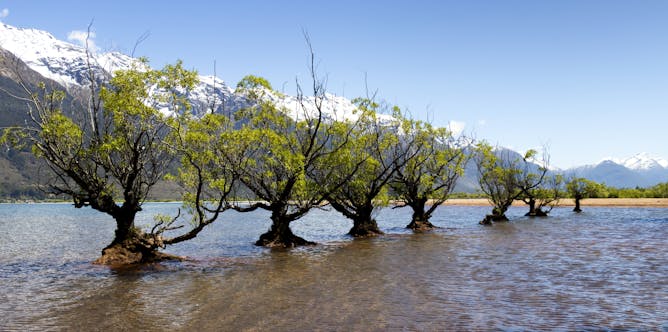
Dr Wendy Liu, University of Auckland; Anne Bardsley, University of Auckland; Jennifer Salmond, University of Auckland; Kristiann Allen, University of Auckland; Marc Tadaki, Cawthron Institute; Martin Brook, University of Auckland
Not all environmental change is obvious. But incremental and cumulative changes can be just as harmful as more immediate and observable events, meaning risk management practices need to adapt.
|

Alan Bollard, Te Herenga Waka — Victoria University of Wellington
The Cold War was an economic standoff as well as an atomic one. The author of a new book describes the minds behind the great ideological battles on that 20th-century front line.
|
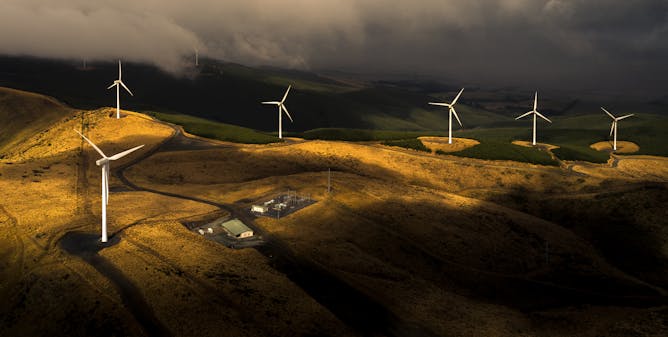
Kevin Trenberth, University of Auckland
The BlackRock climate fund is a start, but New Zealand needs a comprehensive approach to tackling its various environmental and economic vulnerabilities to the climate crisis.
|
From our foreign editions
|

Michelle Grattan, University of Canberra
Outgoing Qantas chief Alan Joyce appeared on Monday with Prime Minister Anthony Albanese to unveil the livery
| |

Marian-Andrei Rizoiu, University of Technology Sydney; Philipp Schneider, EPFL – École Polytechnique Fédérale de Lausanne – Swiss Federal Institute of Technology in Lausanne
New EU rules require social media platforms to take down flagged posts within 24 hours – and modelling shows that’s fast enough to have a dramatic effect on the spread of harmful content.
|
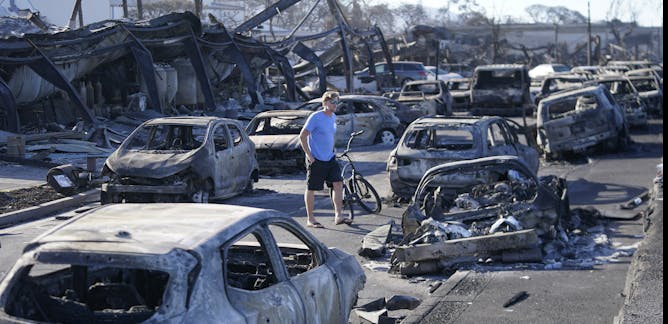
Andrew J. Whelton, Purdue University
Maui County issued an ‘unsafe water’ alert and urged precautions. Residents can face several toxic hazards from fires, as an expert in the chemical risks from fires explains.
| |
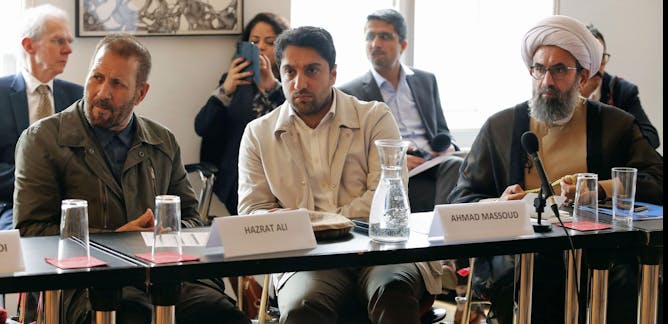
David Loyn, King's College London
Two years after the Taliban takeover of Afghanistan the west is not doing enough to help exiled leaders form a unified opposition.
|
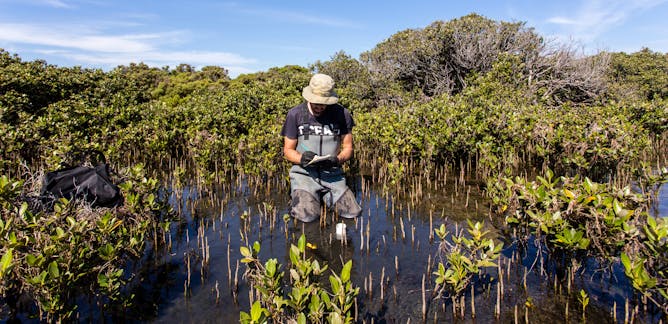
Euan Nisbet, Royal Holloway University of London
The last time methane in the air rose so fast, Greenland warmed by 10°C within decades.
| |

Elia Valentini, University of Essex
An objective way to measure pain is the holy grail of pain research. Gamma waves may be part of the answer.
|

Virva Salmivaara, Audencia
Contrary to popular beliefs, older entrepreneurs who start a business in their 50s are more likely to create radical innovations than younger ones.
| |
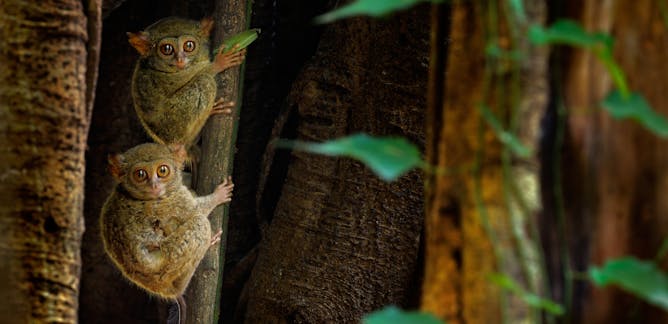
Jatna Supriatna, Universitas Indonesia
I have spent decades researching this unique region. Without serious conservation, millions of hectares of its forests could transform into desolate wastelands, risking wildlife like the tiny tarsier.
|
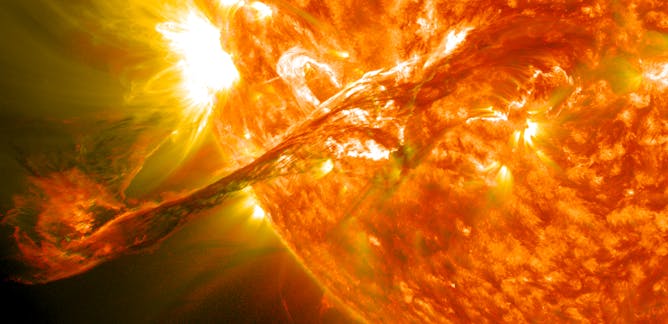
Daniel Billett, University of Saskatchewan
We’re currently a few years into the 25th studied solar cycle. An 11-year period of sun activity, this solar cycle is more active than previously expected.
| |
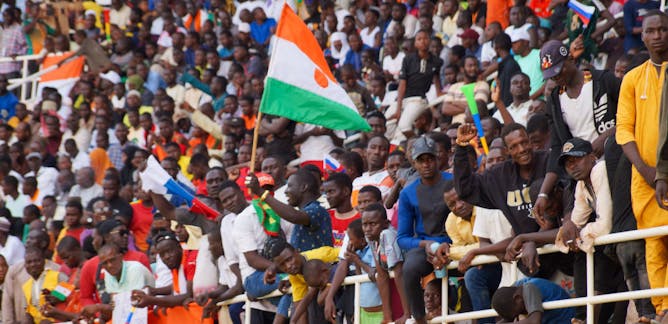
Sebastian Elischer, University of Florida
Examining how military coups unfold is crucial to understanding a country’s path back to democracy.
|
|
|
| |
| |
| |
| |
|
|
|
|
|
|
|